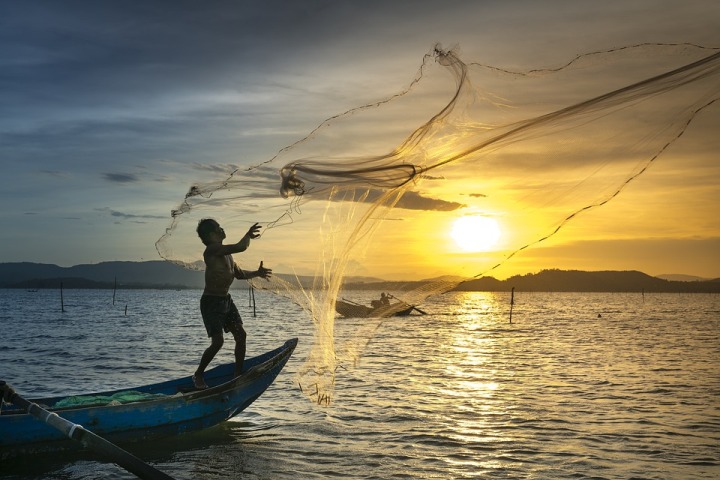A country can provide fishery subsidies if it maintains stocks at sustainable level: India's proposal in WTO

- Country:
- India
A member country of the World Trade Organisation (WTO) can provide subsidies to its fishermen if it maintains stocks at a biologically sustainable level, according to a proposal submitted by India last month.
India has also proposed that a country engaged in distant water fishing (fishing beyond 200 nautical miles from its seashores) cannot provide fishery subsidies for 25 years from the date of entry into force of the fisheries subsidies agreement, an official said.
Fishing in distant waters or some other country's territory is a major problem when it comes to maintaining fish stocks at sustainable levels. Such activities lead to the depletion of fish stocks in the oceans and this happens because of the use of highly mechanized vessels or boats for industrial fishing.
This agreement is under discussion among the 164 WTO members in Geneva.
These negotiations aim to discipline subsidies with the overall objective to have sustainable fishing and to eliminate IUU (illegal, unreported, and unregulated) fishing subsidies, and prohibit subsidies contributing to overcapacity and overfishing. There are primarily three areas of fishing -- territorial waters (12 nautical miles from the seashore), EEZ (exclusive economic zones - 200 nautical miles), and high seas. There are certain developed countries that go into the high seas for exploiting the fishing stock.
The current proposal submitted by India assumes significance as it has stated that the draft text which is at present under negotiations is unbalanced.
''The present text is unbalanced and only when Indian suggestions (from its proposal) are considered and incorporated suitably, then only it will be a balanced text for negotiations. The present text cannot form the basis of negotiations because it is not balanced. Only when these suggestions are discussed, deliberated, and in some manner incorporated in the revised text, then India can start the text-based negotiations,'' the official said.
In the WTO, member countries negotiate through a text to finalize an agreement.
The official added that the current draft text, which is under negotiations, does not provide conducive policy space for developing and least developed countries (LDCs) that are yet to develop their fishing capacities.
''Therefore, the principle of polluter pays and common but differentiated responsibilities and respective capabilities concept must be applied in line with the popular demand of developing countries made at a meeting on July 15 this year,'' the official said.
The suggestion of India for a moratorium of 25 years on countries that are engaged in distant water fishing is based on FAO's (Food and Agriculture Organization) code of conduct for responsible fisheries, which was adopted in 1995. It has recognized the issues of overfishing and the depletion of fish stocks.
Further, India has also proposed that member countries engaged in distant water fishing after this agreement comes into effect should have to reduce such activities by a certain specified percent every year till overcapacity or overfishing persists.
These proposals, the official said, are path-breaking and will go a long way in meeting the desired objective of sustainability of marine resources globally.
The proposal has also clarified that the 25-year prohibition on subsidies will not apply to LDCs; developing countries that provide support to low income and resource-poor fishing communities who indulge in fishing activities within their territorial waters and EEZs, and developing nations that are not engaged in distant water fishing as on date.
Also, the proposed restrictions would not apply to any developing country whose share of annual marine capture fish production is less than one percent of the global annual marine capture fish production.
India's proposal has also stated that countries engaged in fishing in the high seas will have to declare certain details within 90 days after the agreement comes into force.
These details include fishing vessels engaged in distant waters, and names and details of those high seas.
(This story has not been edited by Devdiscourse staff and is auto-generated from a syndicated feed.)
ALSO READ
India US partnership reaches unprecedented levels: Sullivan.
India, Luxembourg hold second round of foreign office consultations in Delhi
India, Luxembourg hold second round of foreign office consulations in Delhi
India, Kazakhstan assess security challenges, exchange views on cross-border terrorism in South Asia
India's Success at UN: Elected to Key Bodies and Re-elected to International Narcotics Control Board










